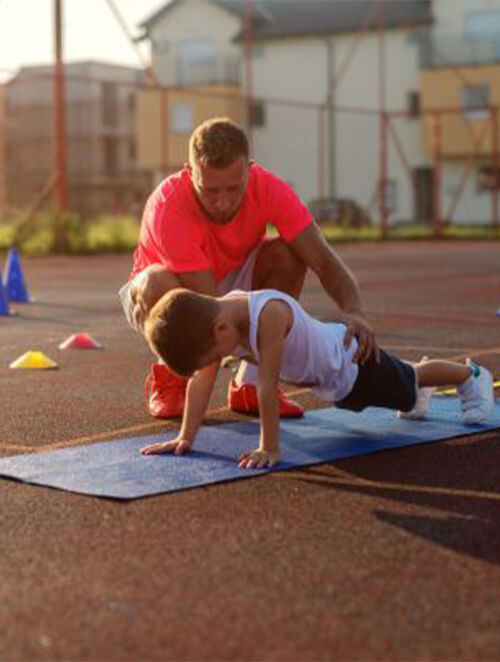Leaving your little one behind is not at all Easy!
 15507
15507

super easy
Leaving your little one behind is not at all easy, and it’s incredibly brutal if he screeches and holds on to you whenever you try to leave. But separation anxiety is a standard part of development. Some children turn hysterical when their mother is out of sight even for a short time, while others seem to showcase persistent anxiety at separations during infancy, toddlerhood, and preschool. The trick for surviving through separation anxiety calls for preparation, quick transitions, and evolution of time. It is a fact that parents suffer as much as their children do when they leave. Even though parents are often reminded that their children stop weeping within a few minutes of their leave-taking, but nonetheless, many feel as if they’re “doing it all wrong” when their kid clings to their legs, cries for them to stay, and grieves the separation. As for working mothers, separation anxiety creates guilts for many. Although it is completely normal behavior and a real sign of deep attachment, separation anxiety can be extremely upsetting.
Separation anxiety differs widely between children:
• Infants:
Separation anxiety comes into being after a child gains knowledge of object permanence. Once your infant registers you’re gone (when you actually are), it may leave him overwhelmed. Although some babies showcase object permanence and separation anxiety as early as four to five months of age, most evolve more powerful separation anxiety at around nine months. Taking a leave can be even worse if your infant’s stomach is empty; he’s exhausted or not feeling well.
• Toddlers:
Many toddlers miss the phase of separation anxiety in infancy and start demonstrating sudden behavioral issues at around fifteen to eighteen months of age. Separations are even harder if children are hungry, tired, or ill—which, unfortunately, is the case for most of the toddlerhood! As children start maturing and develop some sort of independence during toddlerhood, they may become even more conscious of separations. Their way of behaving at separations become all the more noisy, teary, and impossible to stop.
Tips for the Guilty Working Parent
Almost all parents experience some form of guilt regarding their parenting skills and tend to wonder whether they are doing the right thing for their children. All of us have different methods of dealing with the guilt we feel; however, it is important to have a balanced, productive response to the inevitable guilt most working parents feel. Some tips which can help are: It is essential to understand that children only need ‘good enough’ and ‘happy’ parents and not parents who hover around them all the time. Also, there are significant positives for children who see their parents’ work, children view working parents as good role models, and this helps them foster independence at an early age. Ensure to come up with rituals or home routines that you will prioritize at any cost. Some examples are, being home for bedtime on certain nights, a movie night with the kids during weekends, or a family activity on certain days. Select your priorities with the school your child attends. As you are busy with office/work and may not be able to attend all of the school events, enquire with each child which events they feel are most important for you to attend. You can also work out a schedule with your partner, where each of you can take turns to take the children to school at least one day a week. Train your kids to solve their problems themselves instead of giving them advice about what to do. When you are short on time, it is often easier to sort things around yourself, but enabling children to create possible solutions for their problems and letting them try those out, provides children with a sense of agency and control over their own lives.
• Preschoolers:
By the time children reach three years of age, they very clearly make out what impact their anxiety or pleas at separation have on us. It does not mean they aren’t under stress, but they certainly start requesting for a change. In this case, if parents don’t be consistent enough; and return to the room based on the child’s plea, and certainly cancel plans based on their separation anxiety, they unknowingly and unintentionally invite and encourage their children’s stubborn behaviour. For such parents, whose baby’s cries and pleads may tempt them into cancelling their plans, giving in only makes matters worse the next time they try to leave. Here’s what can be done to comfort your children.
1. Practice separation:
To make separation less of a trauma, play hide, and seek to reinforce that you will always come back. You can also enact sending stuffed toys and dolls on short “trips” and then reunite them with the child. Lastly, try leaving him for some short time periods—a few minutes to an hour or so—with someone he knows and has full faith in. Once he notices that you always return (and those other guardians are loving, too), try experimenting with a babysitter.
2. Create a goodbye ritual and avoid sneaking out:
Routine is especially vital for younger kids. Try to create a goodbye custom that will calm down both of you and prepare the baby for the separation. Sing a melody, give a hug or kiss, and wave to your munchkin right before you walk out of the door. A major blunder that parents make is when they try to leave when the child is sleeping, not looking, or sneak away when the child is engrossed in some of the other activity, without saying goodbye. Explore options and find what works best for you and stick to it.
3. Don’t draw out leaving:
It’s okay and healthy for a baby to cry when his parents leave, so don’t discourage it. It means that the child can identify and express his emotions. Instead, hug your child and tell him that you love him, and hand him over to the caregiver. Soon enough, he will stop sobbing—and you’ll stop feeling guilty.
4. Keep your emotions in check:
As hard as it may get, hold your tears—at least until you reach your car. If your child sees you upset, it would only increase his anxiety. It’s unusual for separation anxiety to exist daily after the preschool years. If you’re worried that your child is just not adapting to staying without you, consult your pediatrician. Your pediatrician has helped many families in the same situation as yours and can help calm your uneasiness and formulate a scheme to support both, you and your child.





Leave a Reply